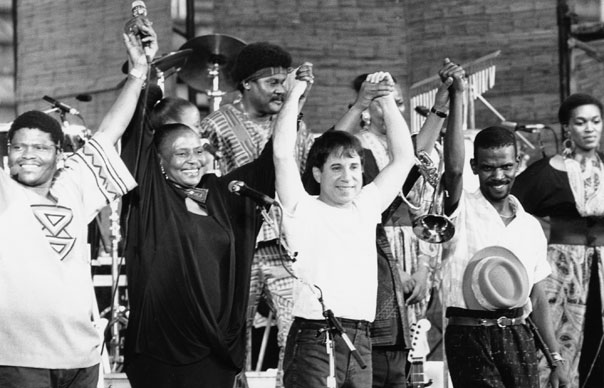Paul Simon has dashed hopes he'll ever record with Art Garfunkel again. The legendary duo haven't completed an album together since 'Bridge Over Troubled Water', which was released shortly before they split in 1970. Speaking to BBC Radio 4's Today programme, Simon said that a problem with Garfunk...
Paul Simon has dashed hopes he’ll ever record with Art Garfunkel again.
The legendary duo haven’t completed an album together since ‘Bridge Over Troubled Water’, which was released shortly before they split in 1970. Speaking to BBC Radio 4’s Today programme, Simon said that a problem with Garfunkel’s vocal chords had left suggestions the duo could reunite a “moot point”.
Asked about a possible reunion, he replied that he “would just as soon not go back and visit the past”. The pair last reunited at the 25th anniversary of the Rock And Roll Hall Of Fame concerts in New York in 2009. A 13-date tour was planned for the following year, but was postponed indefinitely owing to Garfunkel’s vocal problems.
Simon was speaking ahead of the re-issue of his 1986 album ‘Graceland’. He once again insisted he had no regrets over the recording of the album in South Africa.
The folk legend was widely criticised for travelling to the country and making the 1986 with South African musicians, for effectively breaking the cultural boycott of the country due to its racist Apartheid regime.
Although the album was a smash hit and is now credited with bringing local music to the a global audience, he was also censured at the time by the African National Congress, who implied that he was supporting the regime. The controversy is documented in new film Under African Skies, which marks the 25th anniversary of the album.
Speaking at Sundance Film Festival last month, he said: “As for regrets, no I don’t have any regrets because it’s a happy ending. Would I have done things differently? Perhaps. If anybody had come to me and said, during the recording or in the 16 months between the recording and the release of the record anybody from the ANC had come and said ‘we don’t want you to do this’, or ‘we wish you would make some sort of statement supporting us’ I would have been very happy to do so.”



